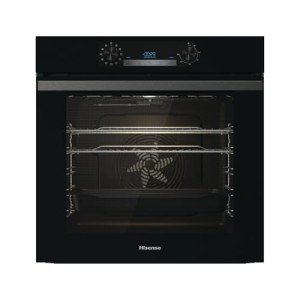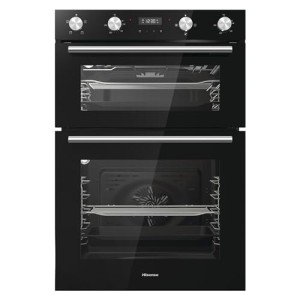7 Tips About Built In Oven That Nobody Can Tell You
페이지 정보
작성자 Leia 댓글 0건 조회 4회 작성일 25-05-20 01:14본문
The Comprehensive Guide to Built-In Ovens
Intro
Built-in ovens are a staple in modern-day kitchens, integrating elegance with performance. They provide a streamlined visual and effective cooking capabilities, making them a preferred option for house owners and culinary lovers alike. This article explores the benefits of built-in ovens, their various types, key functions to consider, installation pointers, and maintenance suggestions, along with regularly asked questions.
Advantages of Built-In Ovens
built in oven uk-in ovens included a variety of benefits that add to their popularity. Here are some crucial advantages:
- Space-Saving Design: Built-in ovens are developed to fit seamlessly into kitchen cabinetry, permitting a more organized and space-efficient kitchen layout.
- Visual Appeal: They provide a smooth and modern-day look that can enhance the total design of the kitchen.
- Improved Functionality: Built-in ovens frequently feature sophisticated features and technologies that support numerous cooking techniques.
- Boosted Cooking Experience: Many built-in designs include self-cleaning functions, temperature level probes, and programmable settings, improving the cooking experience.
- Increased Property Value: A properly designed kitchen with built-in appliances can boost the value of a home.
Types of Built-In Ovens
Built-in ovens come in a number of types, each designed to satisfy various cooking preferences and requirements. Here are the main types:
| Type of Built-In Oven | Description |
|---|---|
| Single Oven | A single, standalone oven for traditional baking and roasting. |
| Double Oven | Combines 2 ovens in one system, permitting multiple meals to prepare at various temperature levels. |
| Wall Oven | Installed in the wall, maximizing counter space, ideal for small kitchen areas. |
| Convection Oven | Utilizes fans to circulate hot air for even cooking, boosting the results of baked products. |
| Steam Oven | Makes use of steam for healthier cooking options, protecting nutrients in food. |
Secret Features to Consider
When choosing a built-in oven, several functions can impact efficiency and usability. Here are some essential functions to bear in mind:
Cooking Modes
- Bake: Traditional baking with bottom heat.
- Broil: Top heat cooking ideal for browning and crisping.
- Convection: Circulates hot air for even cooking.
- Steam: Uses steam for healthier cooking alternatives.
Size and Capacity
- Requirement sizes usually range from 24 to 30 inches broad.
- Consider the internal capacity-- it can range from 3 to 6 cubic feet, permitting different dish sizes.
Controls and Smart Features
- Touchscreen Controls: Easy programs and changes.
- Smart Technology: Connectivity features enable for remote monitoring and control by means of smart device applications.
Energy Efficiency
- Look for designs with ENERGY STAR scores, suggesting lower energy consumption.
Safety Features
- Functions like automobile shut-off and child locks enhance security during operation.
Setup Tips
Setting up a built-in oven might need professional help, however here are some general ideas to remember:
- Choose the Right Location: Ensure there's enough space in your cabinetry for setup, bearing in mind ventilation requirements.
- Electrical Requirements: Check that your kitchen's circuitry fulfills the intergrated oven and hob's high power built in Ovens requirements, particularly for electric models.
- Level the Oven: Ensure the oven is level to promote even cooking.
- Secure the Oven: Attach it securely to the kitchen cabinetry to avoid movement during use.
Upkeep Advice
Routine upkeep is important for the longevity and performance of a built-in oven. Here's how to keep it in top shape:

- Regular Cleaning: Wipe down surfaces after each use and carry out deep cleansing periodically.
- Check Seals: Inspect door seals for wear and ensure they maintain an airtight fit to enhance energy effectiveness.
- Calibrate Temperature: If food regularly comes out overcooked or high power built In ovens undercooked, consider recalibrating the oven's temperature settings.
- Expert Servicing: Schedule annual check-ups with a skilled specialist to keep optimum performance.
FAQs
What is the distinction between a built-in oven and a freestanding oven?
Built-in ovens are developed to be installed within cabinets, using a seamless appearance. In contrast, freestanding ovens are standalone units that normally include their own cooktop.

Are built-in ovens more costly than freestanding designs?
Usually, built-in inbuilt ovens can be more pricey due to the added installation expenses and advanced features. However, costs differ extensively based on brand name, size, and performances.
Can I set up a built-in oven myself?
While it is possible to install a built-in oven yourself, it is recommended to hire a professional to guarantee proper installation, particularly if modifications to cabinetry or electrical work are needed.
How frequently should I clean my built-in oven?
It is a good idea to clean your built-in oven regularly after heavy use. For much deeper cleanings, use the self-cleaning function if readily available or periodically carry out manual cleaning to prevent build-up.
Built-in fitted ovens are an important addition to any kitchen, providing both visual appeal and advanced cooking capabilities. By understanding their types, functions, setup, and upkeep requirements, property owners can make informed options that boost their cooking experience and increase the overall worth of their homes. As kitchen designs continue to evolve, built-in ovens will likely remain a prominent option for contemporary homes.
댓글목록
등록된 댓글이 없습니다.